|
Neil
Ellis
Skilled, and sometimes overlooked, negociant winemaker with a
penchant for cool-climate regions
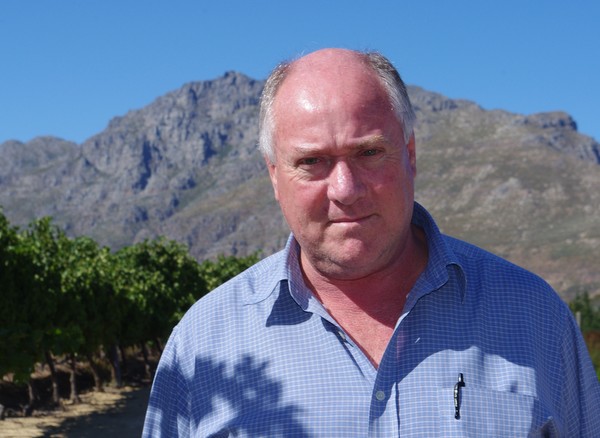
I first visited
Neil Ellis in 2005, and was impressed by his wines. Since then
he’s moved location, with a new winery: from 2014, he’ll be
making all his wines here, no longer needing to run multiple
cellars. The new winery is in Ida’s Valley, Stellenbosch, which is
part of the Simonsberg and near to Glenelly, Rustenberg, Tokara and
Delaire.
Neil Ellis started out on his own as a
negociant back in 1986 – a relatively rare commodity in South
Africa where estate wines are held in such high esteem – after
gaining experience with KWV and Groot Constantia. The business model
was simple: he leased cellar space, bought in top-quality grapes,
and made his wines.
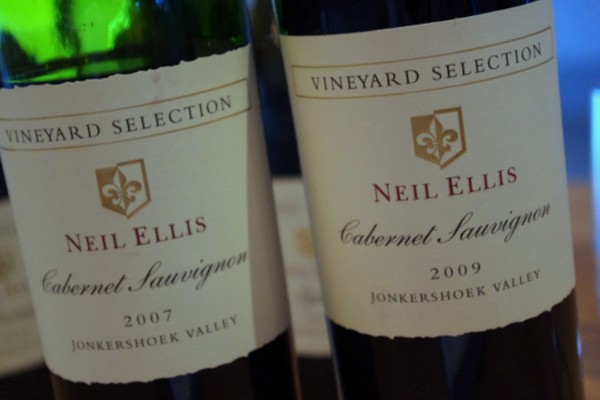
Then in 1993 he went into partnership
with Hans Peter Schroder, who coincidentally had in 1986 purchased a
Stellenbosch wine estate, Oude Nektar, in the Jonkershoek Valley.
Neil brought his winemaking expertise to the table, while Hans Peter
brought extensive cellar space and a spectacular estate. Neil has
the majority shareholding, and as well as him and Hans Peter,
Neil’s son in law is involved.
There are 7.5 hectares of vines at
Ida’s Valley, next to the winery, but the majority of Neil’s
vineyards are elsewhere. Oude Nektar in Jonkershoek, Stellenbosch,
has 40 hectares of red grapes; there’s the 120 ha Contreberg Farm
in Groenekloof, Darling, which is at altitude and just 8 km from the
cold Atlantic, a good source of whites; and the Whitehall farm in
Elgin, another cool climate area. His own vineyards satisfy about
half of his needs; the rest is based largely on long-term contracts
with growers, supplemented by a bit of spot buying. ‘I have always
had an interest in the fruit from cooler climate sites,’ says
Neil. But it’s a long process getting to know vineyards: ‘It
takes an above average viticultural team 10 years to understand a
vineyard site before you can formulate a winemaking policy.’
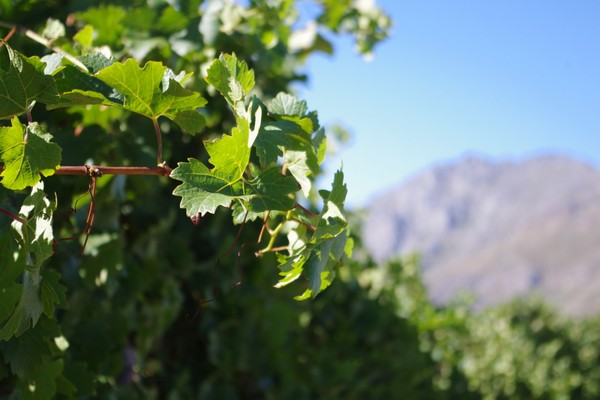
Total crush each year varies, but is in
the region of 650 tons. Neil is no longer selling to supermarkets in
the UK, but has concentrated on working with Berkmans, with an
on-trade focus. This has made a significant difference. ‘With
supermarkets, the only time you are selling significant volumes is
when there’s a promotion, which accounts for 70–80% of
volume,’ says Neil. ‘And no one makes money in a promotion.’
He’s also critical of South African producers, who he thinks lack
long-term strategy. ‘It’s not in the South African nature to
play the long game; it is not our chemistry.’ He thinks that in
the long term South Africa will sell less volume, but will be
selling more niche products.’
‘The art of wine is blending and
selection, but only science can give you quality,’ says Neil. He
believes in the scientific approach: ‘any reasonable-sized winery
should have an experimental program.’
‘We have weathered the storm of
ego-driven wines,’ Neil states. ‘I am not trying to make a
certain style to suit opinion formers. Let the sites drive the
style. In terms of winemaking, it is about applying a management
within that environment to protect and enhance what the vineyard can
give.’
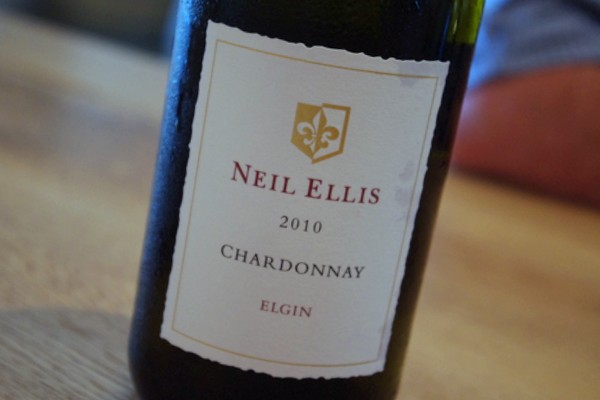
I asked him about the use of stems in
making Syrah. ‘We employ a percentage of whole bunch and a
percentage of whole berry. The remained is destalked and crushed. It
varies from vintage to vintage. The challenge here is that contrary
to Europe we don’t usually end up with well ripened stalks. The
beauty of Shiraz is that under our conditions if it is
physiologically ripe it has softer, well framed tannins. You get
integration from a relatively young stage in the wine’s
development. The European technique isn’t directly applicable to
our circumstances, but Shiraz is one of the few varieties where
stems might have a beneficial influence.’
I
was particularly impressed by Neil Ellis’ Pinotage, a variety I
struggle with. ‘We take a Burgundian approach with extraction
techniques and use Burgundian wood,’ says Neil. ‘The idea is to
capture and frame integrated tannins, looking for brightness of
fruit. One of the beauties of this variety is that if you exclude
aggressive tannins, there will always be sweetness of fruit. This
wine portrays all the elements of wine that I am interested in: we
understand this particular piece of earth and what it can give. It
has immediate access but we think it shows its best after 5–6
years.’
THE
WINES
Neil Ellis Sauvignon Blanc Barrel
Fermented 2010 Coastal Region, South Africa
This has around 15% new oak, with 500 litre barrels used.
Focused, pure fruit driven nose with subtle grassy, grapefruit
notes. There’s mineral complexity here, alongside
grapefruit/citrus character, and good texture. Lovely. 91/100
Neil Ellis Chardonnay 2010 Elgin,
South Africa
From 3 blocks in Elgin, on different soils. A region that is
becoming very well known for Chardonnay. Fine, fresh nose with
focused citrus and white peach characters. Restrained, fresh,
mineral palate with good acidity and also volume and breadth. Spicy
oak in the background (combination of 228 and 500 litre barrels).
Very fine with ageing potential. 93/100
Neil Ellis Grenache 2009
Piekenierskloof, South Africa
From a remarkable vineyard in the Citrusdal, on a mountain
plateau north of Malmesbury famous for its rooibos tea. It’s a
disease-free area and these vines are on their own roots (60 years
old now). Sweet, vivid ripe berry fruits nose. The palate is focused
and fresh with vivid cherry and raspberry fruit. Ripe and sweet but
also fresh and spicy with a warm finish. 92/100
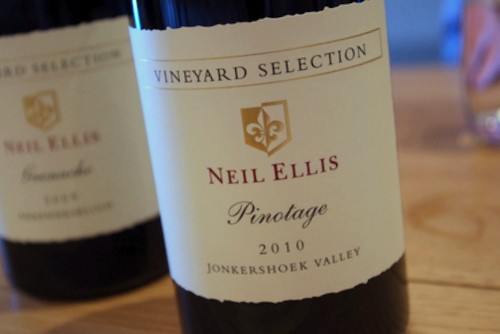
Neil Ellis Pinotage 2010 Jonkershoek
Valley, Stellenbosch, South Africa
This is from a 400 m vineyard facing south east, with tiny
yields of small berried small bunches. Neil Ellis says it is really
a white wine site, but it has made a lovely Pinotage. Sweet, pure,
fresh elegant cherry fruit nose. Very appealing with seductive
aromatics and pure, elegant berry fruits on the palate. Supple and a
bit spicy, with lovely purity, elegance and appeal. 93/100
Neil Ellis Syrah 2007 Jonkershoek
Valley, Stellenbosch, South Africa
Sweet, aromatic and nicely spicy with some tarry notes alongside
complex, rich, spicy berry fruits. The palate is fresh with good
acidity and vivid, spicy, focused citrus freshness as well as spicy,
earthy berry fruits. Lots of interest. 92/100
Neil Ellis Syrah 2010 Groenekloof,
Darling, South Africa
Very fresh and pure with vivid pepper and olive cool climate
notes meshing with pure cherry and berry fruits. Ripe, pure,
slightly meaty fruit notes. Smooth-textured and pure, with cherries
and plums complemented by peppery freshness. Fabulous. 94/100
Neil Ellis Cabernet Sauvignon 2007
Jonkershoek Valley, Stellenbosch, South Africa
Distinctive gravelly nose. Bold, rich and tarry but still has
freshness, and a savoury blackcurrant bud note. The palate is fresh
with pure blackcurrant fruit. Stylish and ripe but really fresh with
a spicy, gravelly, savoury twist. 93/100
Neil Ellis Cabernet Sauvignon 2009
Jonkershoek Valley, Stellenbosch, South Africa
Brooding, taut blackcurrant bud nose with black fruits and some
savoury spiciness. The palate shows lovely fresh blackcurrant fruit
with good acidity. Very pure and fresh with lovely precision.
Fabulous. 94/100
STELLENBOSCH
REVISITED
 Part
1, Waterkloof Part
1, Waterkloof
 Part
2, Waterford Part
2, Waterford
 part
3, Reyneke part
3, Reyneke
 Part
4, Kanonkop Part
4, Kanonkop
 Part 5, Rustenberg Part 5, Rustenberg
 Part
6, Meerlust Part
6, Meerlust
 Part
7, Delheim Part
7, Delheim
 Part 8,
Thelema Part 8,
Thelema
 Part
9, Neil Ellis Part
9, Neil Ellis
 Part
10, Tokara Part
10, Tokara
 Part
11, Oldenburg Part
11, Oldenburg
Wines
tasted 03/12
Find these wines with wine-searcher.com
Back
to top
|

